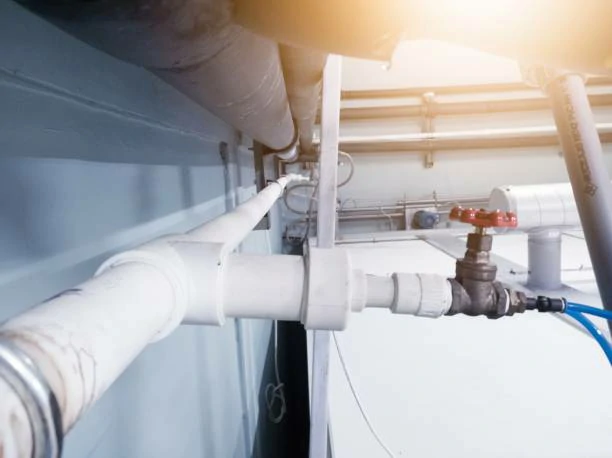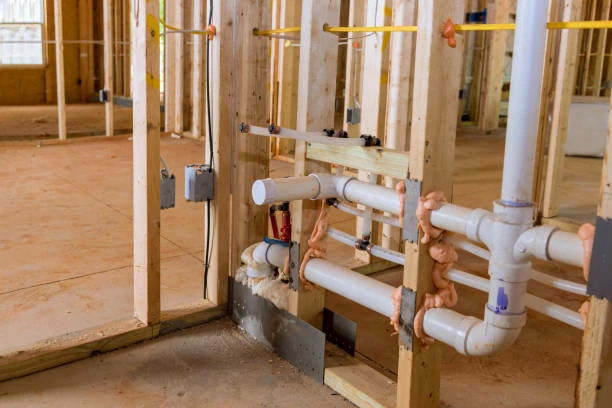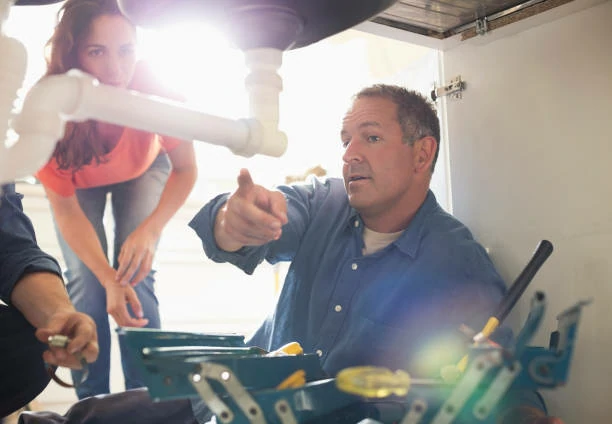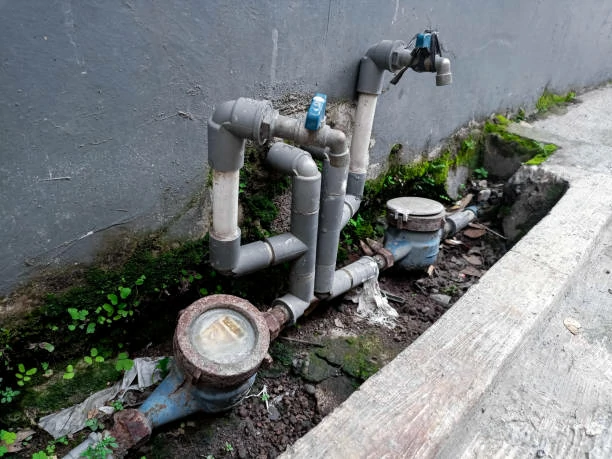High-Density Polyethylene (HDPE) pipes are widely used across various industries due to their exceptional pressure resistance. This characteristic makes them ideal for applications requiring the transport of fluids under high pressure. This essay explores the factors contributing to the pressure resistance of HDPE pipes, their performance under different conditions, and the practical implications for various industries.
Intrinsic Properties of HDPE
The pressure resistance of HDPE pipes is primarily due to the intrinsic properties of the material. HDPE is composed of long chains of ethylene molecules with minimal branching, resulting in a dense and robust structure. This high density gives HDPE its remarkable strength and ability to withstand internal pressure without deforming or breaking. The material’s molecular structure provides excellent tensile strength, which is crucial for maintaining the integrity of the pipes under high pressure.
Stress Distribution
HDPE pipes are designed to evenly distribute stress across their walls, reducing the likelihood of weak points where cracks or breaks could develop. The flexibility of HDPE also allows it to absorb and dissipate stress, further enhancing its ability to withstand high pressure. This even stress distribution is essential for maintaining the durability and longevity of the pipes, especially in applications where they are subjected to fluctuating pressure levels.
Temperature and Pressure Performance
HDPE pipes perform well under a wide range of temperatures, maintaining their structural integrity and pressure resistance in both hot and cold environments. At low temperatures, HDPE remains flexible, preventing brittleness that can lead to cracking. This property is especially crucial for applications in colder climates, where freezing conditions may expose the pipes. In high-temperature environments, HDPE retains its strength, ensuring consistent pressure resistance. The material’s ability to withstand thermal cycling, or repeated heating and cooling, without degrading is crucial for applications with varying temperature conditions.
Resistance to Environmental Stressors
HDPE pipes are resistant to a variety of environmental stressors that can affect their pressure resistance. They do not corrode, unlike metal pipes, which can weaken over time due to rust and chemical reactions. HDPE is also resistant to many chemicals, preventing degradation from exposure to acids, alkalis, and solvents. This chemical resistance ensures that HDPE pipes maintain their pressure resistance and structural integrity even when transporting corrosive fluids.
Design and Manufacturing
The design and manufacturing process of HDPE pipes play a significant role in their pressure resistance. Manufacturers adhere to strict standards and quality control measures to ensure that the pipes meet the required specifications for high-pressure applications. The production process includes the selection of high-quality raw materials, precise control of the extrusion process, and thorough testing of the finished products. These steps ensure that HDPE pipes have uniform wall thickness, smooth internal surfaces, and consistent mechanical properties, all of which contribute to their ability to withstand high pressure.
Applications in Various Industries
The high pressure resistance of HDPE pipes makes them suitable for a wide range of applications across different industries:
1.Water Supply Systems: HDPE pipes are widely used in municipal and industrial water supply systems. Their ability to withstand high pressure ensures a reliable supply of water over long distances, even in areas with varying terrain. The smooth internal surface of HDPE pipes reduces friction losses, maintaining high flow rates and efficiency.
2.Gas Distribution: The gas distribution industry relies on HDPE pipes for their pressure resistance and flexibility. HDPE pipes can handle the high pressure required for transporting natural gas and other gases, ensuring safe and efficient distribution. Their resistance to corrosion and chemical reactions further enhances their suitability for this application.
3.Irrigation Systems: In agricultural irrigation systems, HDPE pipes are used to transport water under high pressure to fields and crops. Their durability and resistance to environmental stressors make them ideal for use in harsh conditions, such as in soil with high mineral content or areas with extreme temperatures.
4.Industrial Applications: HDPE pipes are used in various industrial processes that require the transport of fluids under high pressure. This includes the chemical industry, where pipes must withstand the pressure and corrosive nature of the fluids being transported. The flexibility and strength of HDPE pipes ensure reliable performance in demanding industrial environments.
Installation and Maintenance
Proper installation and maintenance practices are essential for maximizing the pressure resistance and lifespan of HDPE pipes. This includes ensuring that the pipes are correctly supported and aligned, avoiding excessive bending or stress on the joints. Regular inspections and maintenance can identify potential issues before they become serious problems, ensuring that the pipes continue to perform reliably under high pressure.
Economic and Environmental Benefits
The pressure resistance of them offers both economic and environmental benefits. Economically, the durability and long lifespan of them reduce the need for frequent replacements and repairs, lowering maintenance costs. The efficiency of them in high-pressure applications also minimizes downtime, enhancing productivity in industrial processes.
The long service life of HDPE pipes reduces the overall consumption of raw materials by minimizing the need for replacements. Additionally, manufacturers can recycle HDPE, processing and reusing pipes at the end of their life cycle, which contributes to sustainable practices.
Research and Development
Ongoing research and development efforts continue to enhance the pressure resistance of them. Innovations in polymer chemistry and the development of new additives and manufacturing techniques aim to improve the material’s mechanical properties and extend its lifespan even further. Researchers also study the performance of them in various environments to better understand their long-term behavior and identify opportunities for improvement.
Conclusion
Environmentally, using HDPE pipes for their long service life reduces the overall consumption of raw materials because fewer replacements are needed. Their intrinsic properties, resistance to environmental stressors, and robust design ensure long-term performance and durability. Industries such as water supply, gas distribution, irrigation, and industrial processes benefit significantly from the use of HDPE pipes, enjoying reduced maintenance costs and improved operational efficiency. By adhering to proper installation and maintenance practices, HDPE pipes can provide optimal performance in even the most demanding conditions. As research and development efforts continue, HDPE pipes will likely see even greater improvements in pressure resistance, solidifying their position as a versatile and resilient material for the future.
Contact
IFAN is a professional manufacturer with 30 years of experience, dedicated to producing high-quality plastic pipes, fittings, and valves. Our products include brass valves, PPR valves, as well as various pipes and fittings to meet different customer needs. Whether you need plumbing and drainage pipes or valve products, IFAN can provide a diverse range of high-quality, cost-effective products to support your projects. Below is our contact information.
We will reply your email or fax within 24 hours.
You can call us at any time if there is any question on our production.
For more information,pls visit our webside https://www.ifanplus.com/
Pls Mailto: [email protected]






